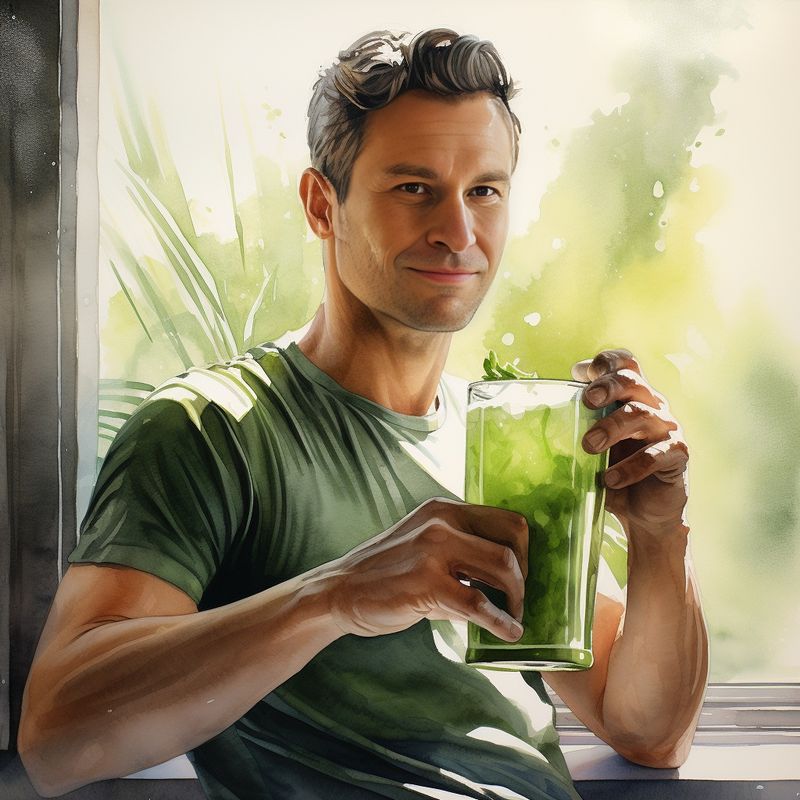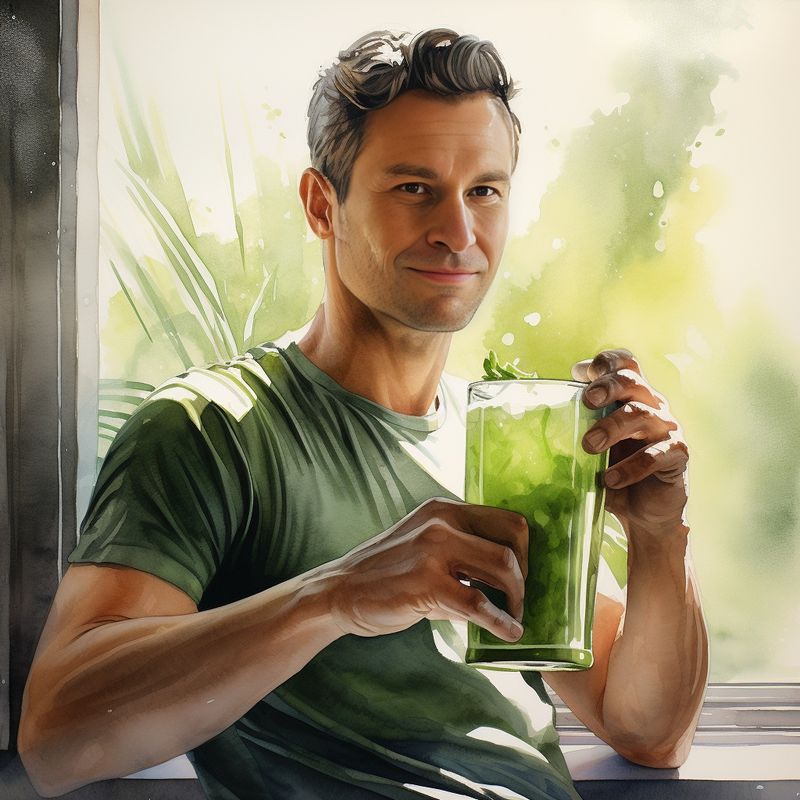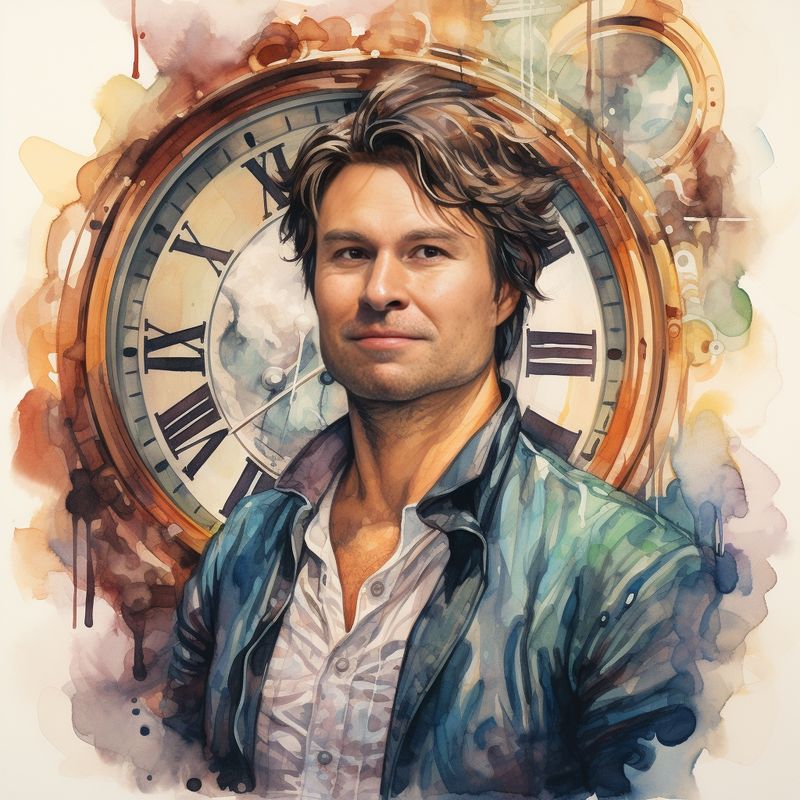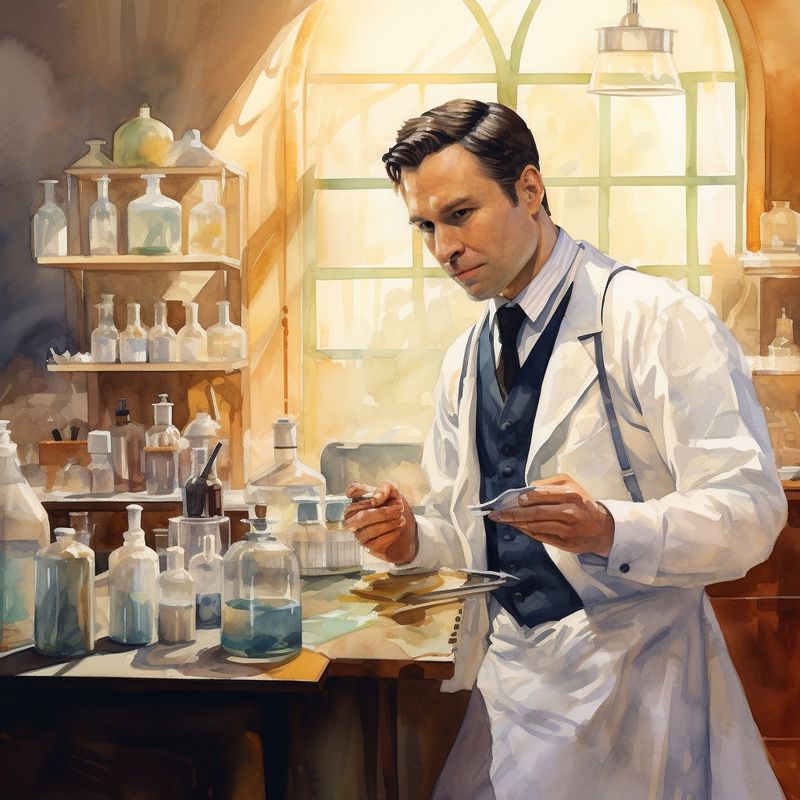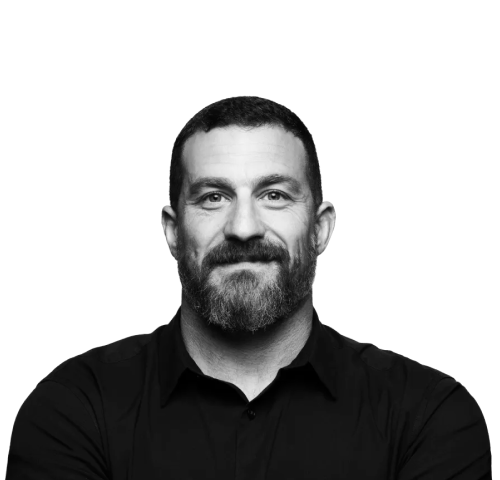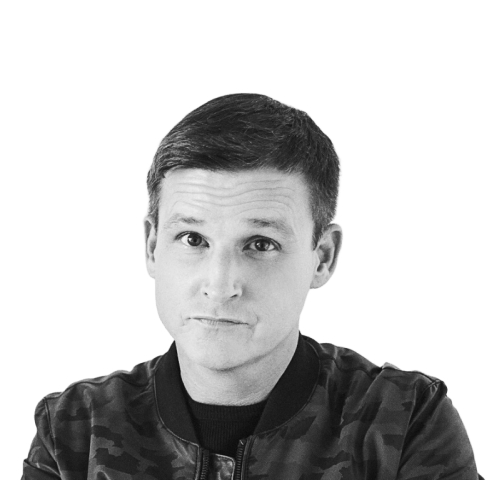Dr. David Sinclair’s Daily Routine in 2025
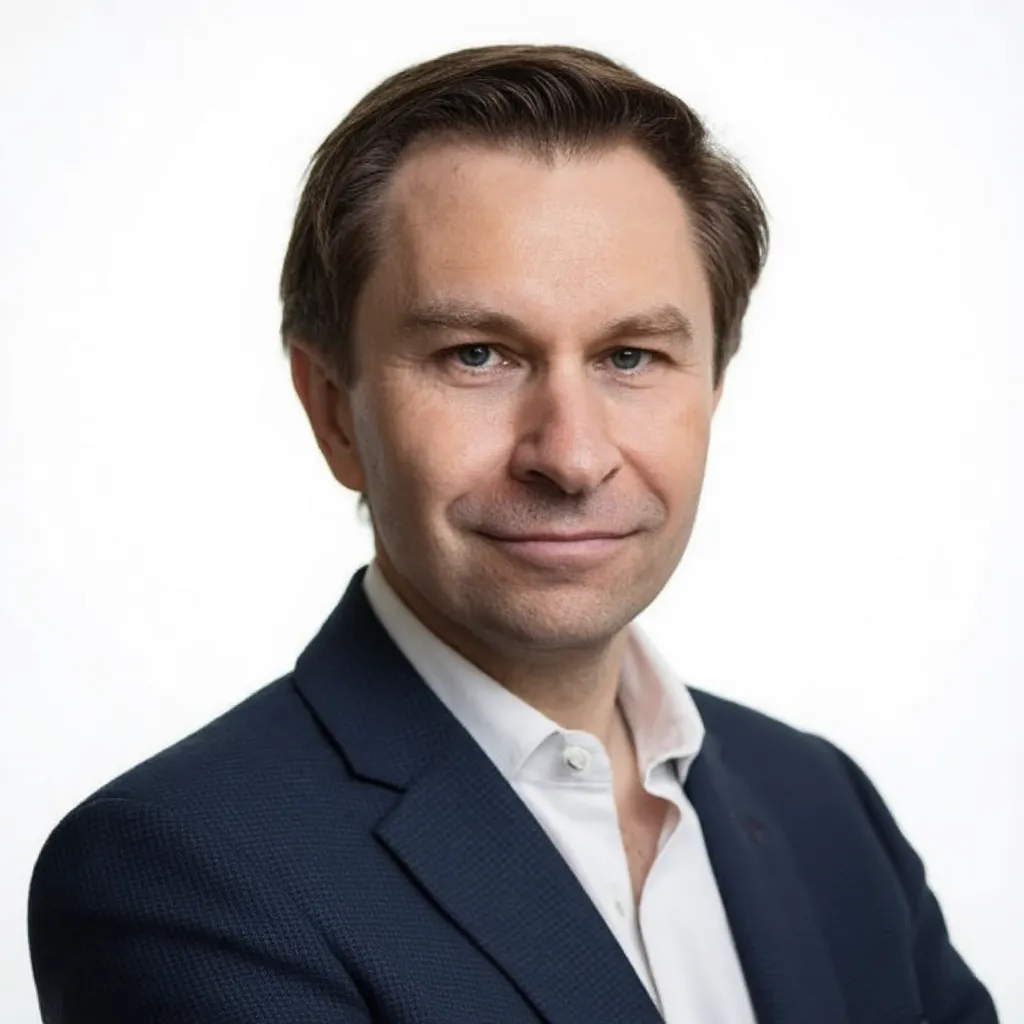
The ultimate guide to longevity and reversing aging
David Sinclair, a prominent figure in the realm of aging research, has dedicated his career to unraveling the mysteries of why we age and how we can potentially slow down this process. With a Ph.D. in Molecular Genetics earned from the University of New South Wales, Sydney, in 1995, he embarked on a journey that led him to significant discoveries during his postdoctoral research at M.I.T. Dr. Sinclair's groundbreaking work has not only advanced our understanding of aging but has also offered glimpses into how we might defy its effects. His influence extends beyond the laboratory; he's authored a book, “Lifespan,” that delves into the science of longevity. At 53 years old, David Sinclair, a Harvard genetics researcher who talks about longevity and a biohacking routine, is a leading voice in the field. In this article, we'll explore David Sinclair's daily routine, which includes his anti-aging strategies, his dietary choices, and his age-defying regimen that keeps him at the forefront of the conversation on aging and health.
- Last Updated: July 15, 2025
-
-
6:00 – 6.30 am
Wake-up
- Regularly wakes up early each day.
- Commences the morning by addressing emails from bed.
- Takes a brief shower.
-
6:30 – 7:00 a.m.
Dental Hygiene
- Dr. David Sinclair emphasizes dental hygiene with non-toxic toothpaste for a safe and gentle approach to oral care.
- He also practices coconut oil pulling, a natural method known for its potential oral health benefits.
Dr. David Sinclair on Coconut Oil Pulling:
“I’ll start by rinsing my mouth with coconut oil—pulling it—that improves my mouth microbiome.”
Coconut oil pulling benefits:
- Coconut oil enhances oral health by reducing harmful bacteria, preventing gingivitis, and freshening breath.
- May contribute to teeth whitening and removal of stains.
- Potential for detoxification, improved skin complexion, and anti-inflammatory effects, although more research is needed to confirm these benefits.
Dr. David Sinclair on Toothpaste Choices:
“I brush my teeth with nontoxic toothpaste”
Benefits of Non-Toxic Toothpaste:
- Gentle on teeth and gums, making it ideal for sensitive individuals.
- Free from harmful chemicals such as parabens, sulfates, and artificial dyes, reducing health risks.
- Environmentally conscious, with eco-friendly packaging, benefiting both oral and environmental health
- Allergy-friendly, featuring reduced synthetic ingredients and ensuring safety for children and those with sensitivities.
-
7:00 – 8:00 a.m.
Nutrient-Rich Yogurt Mix
- Dr. David Sinclair’s homemade yogurt is a powerhouse of health, carefully curated with a blend of select ingredients. Here’s a concise breakdown of what goes into his yogurt mix:
Ingredients:
- Resveratrol: renowned for its potential health benefits and found in red wine and various fruits, aligns with Dr. David Sinclair’s mission to reverse aging.
- Olive Oil: Renowned for its heart-healthy properties, olive oil is a vital component of his yogurt mix.
- Probiotics: champions of gut health, make an essential contribution to this blend.
- NMN Supplements: NMN (Nicotinamide Mononucleotide) supplements, a noteworthy addition in Dr. David Sinclair’s regimen, are celebrated for their potential anti-aging attributes.
Dr. David Sinclair on his Supplement Stack:
“I go down to the kitchen and have a little bit of yogurt with some polyphenols. The one I’ve talked about a lot is resveratrol. Now, it’s just a couple of mouthfuls of yogurt so it’s not going to break my fast and it’s not considered breakfast by any means. But it is how I get all my polyphenols in and they dissolve—I’ve been doing that for about 15 years.”
Dr. David Sinclair on Resveratrol
“One resveratrol is a small, what’s called a polyphenol. It’s produced by many plants to survive. It’s produced by grapes and it’s concentrated in red wine. It should be a white powder; it shouldn’t be brown. If you buy it and it’s brown, throw it away. I take a gram of it every morning, with rare exceptions when I’m traveling and I forget it, but I mix it with a little bit of yogurt because it’s just a little bit like a couple of teaspoons.”
Dr. David Sinclair on NAD (Life Extension)
“The doubling of that NAD is important because as we get older, we make less of this chemical. We have about half the levels of NAD in our skin, for example, as I have about half the levels I would have made when I was 20. So, I boost those levels back up to being youthful, and the idea is that the body’s defenses are activated.”
-
Morning Supplements
Dr. David Sinclair Supplements (Morning):
Dr. David Sinclair on his Morning Supplements
“Now, the third supplement I mentioned is Athletic Greens. Because I’m on a vegetarian/vegan diet, which I describe as being a newbie struggling vegan, I need to ensure I get all the necessary nutrients. Athletic Greens is full of vitamins and plant-based whole foods that ensure I don’t lack those nutrients. When you’re on a vegan diet and have also given up dairy, it’s crucial to make sure there’s adequate nutrition.”
“I typically follow a one-meal-a-day (OMAD) pattern, but I want to add another couple of letters to that, making it ANOMAD (Adequate Nutrition One Meal A Day). I just made that up, by the way, so consider it trademarked. Adequate nutrition is key, and that’s what Athletic Greens provides for me.”
Nicotinamide mononucleotide (NMN): 1g per day, in the morning.
To improve absorption, David combines NMN supplements with olive oil or natural yogurt.
NMN acts as a precursor to NAD+, a molecule vital for cellular metabolism and sustaining youthful levels in the body. Dr. David Sinclair utilizes NMN to promote NAD+ production and potentially extend the aging process.
Resveratrol: 1g per day, in the morning.
David combines 1000mg of Resveratrol with olive oil and consumes it each morning. This combination complements NMN by activating Sirtuin genes and aiding in DNA repair processes.
Spermidine: 1 mg per day, in the morning.
Spermidine is present in foods such as cheese, legumes, mushrooms, and soy, influencing aging processes. It has links to a decreased risk of neurodegenerative diseases, cardiovascular issues, and cancer-related mortality in humans.
Quercetin and Fisetin: 500 mg each, once per day, in the morning.
Quercetin and Fisetin have the ability to eliminate senescent cells, which are cells that resist dying. These potent flavonoids act as antioxidants and are recognized for their capacity to decrease inflammation and tissue damage associated with aging.
Additional Supplements
Vitamin D3: 4,000 to 5,000 IU per day.
Vitamin D is vital for various bodily processes, including bone health and immunity. Vitamin D deficiency is common, and symptoms like fatigue, hair loss, sleep disturbances, and bone pain may indicate the need for vitamin D supplementation.
Vitamin K2: 180 to 360 micrograms per day.
Vitamin K2 plays a significant role in bone and mitochondrial health. It can be naturally obtained from sources like leafy greens, whole grains, and natural oils.
Dr. David Sinclair has been using Statin since the age of 29 and now maintains the heart health of a 20-year-old. However, it’s crucial to emphasize that Statin may not be suitable for everyone, He uses it because his family has a history of heart problems.
Low-dose aspirin: 85 mg per day.
Dr. David Sinclair consumes a daily dose of 85 mg of Aspirin, potentially for heart stroke protection. However, it’s vital to exercise caution with large Aspirin doses due to the risk of bleeding.
TMG (Trimethylglycine or betaine): 500 mg to 1,000 mg per day
TMG, or Trimethylglycine is a naturally occurring compound, also known as betaine, plays a crucial role in supporting several biochemical processes within the body. It acts as a methyl group donor, facilitating essential functions like liver health and cellular replication.
Omega-3 fatty acids play a crucial role in heart health and cognitive function. Omega-3 supplementation may help mitigate signs of aging by maintaining skin hydration and reducing inflammation. It’s important to note that daily omega-3 intake should not exceed 3 grams to prevent potential side effects like low blood pressure and diarrhea.
If you want to learn more about his supplementation routine, consider checking out our article on the David Sinclair Supplement List.
-
Buy Athletic Greens ->
Benefits of daily use of AG1
AG1 by Athletic Greens is a comprehensive nutrition solution formulated to support whole-body health with 75 high-quality vitamins, minerals, and whole-food sourced ingredients. Its powder form makes it highly absorbable, so your body can easily get the nutritional support it needs every day.
- Promotes gut health: Prebiotics, probiotics, and naturally occurring enzymes improves nutrient absorption.
- Supports immunity: Your daily dose of Vitamin C, zinc, healing mushrooms, and more.
- Helps recovery: Packed with superfoods, adaptogens, and antioxidants. Trusted by the world’s best athletes.
- Sustains energy: Magnesium regulates all-day energy by supporting energy production in our cells.
-
Morning Hydration
- Dr. David Sinclair starts his day with hot water and lemon, a refreshing and hydrating choice.
- He opts for Green Matcha Tea as his caffeine source, known for its potential health benefits.
- Staying hydrated is a priority for him, contributing to overall well-being.
Hot Water With Lemon
“And then I have hot water with lemon.”
Benefits of Hot Water With Lemon
Lemons are a vitamin C powerhouse, and many find benefits in drinking hot water with lemon slices, such as improved complexion, reduced bloating, and detoxification.
Matcha Tea
Dr. David Sinclair’s choice for a caffeine source is Green Matcha Tea.
“Then I have a Green Matcha Tea, which is full of healthy polyphenols like ECGC catechins—and that’s a cancer-preventative—so I have at least one of those, maybe two”
Benefits of Matcha Tea
Matcha contains more catechins than regular green tea, serving as natural antioxidants. This can aid in reducing cell damage and preventing age-related diseases. Matcha may also enhance brain function, support heart health, and contribute to liver protection.
-
Intermittent Fasting
- Dr. David Sinclair’s fasting routine incorporates 16:8 Intermittent Fasting, describing it as “one of the most beneficial practices for your health.”
“It’s not just about the period of eating, it’s the period of not eating that’s so important to boost the body’s defenses against aging to maximize longevity. I started skipping breakfast, avoiding sugar, and taking Resveratrol.”
David on Skipping Breakfast:
“I started working on my age in my early 30s and focused on skipping breakfast.”
Dr. David Sinclair on Intermittent Fasting
“Yes. I think three meals a day plus snacks is too much. It puts the body in a state of abundance, which turns off our longevity genes. So you want to have a period of fasting each day starting as early as your 20s. But if you’re younger, we don’t want malnutrition or starvation, that’s not the point. But you want to take-in your nutrition and your calories in a certain window. The one that I try to go for is 16 to 18 hours without eating a large meal. That’s basically having a very late lunch or large dinner.”
Recommends Three Types of Intermittent Fasting:
“You’re an individual, you’ve got a different lifestyle, tolerance for pain and hunger, and microbiome—these are really important things to take into consideration.”
- Extended fasting
“These extended periods are going to do a real deep clean of the body and turn on that autophagy. Especially once you pass the three-day mark, when your metabolism switches into what’s called chaperone-mediated autophagy—also known as the deep cleanse.”
- Time-Restricted Feeding
“You want to have at least 16 hours of not eating or not eating very much,”
“So typically that means having a late lunch if you skip breakfast, or if you prefer to skip dinner, you can skip that.”
- Fasting-mimicking diet
The “fasting-mimicking diet” has demonstrated advantages for cancer patients during chemotherapy.
Dr. David Sinclair’s diet entails a monthly five-day calorie restriction (1,100 calories per day), focusing on plant-based, low-carb, low-protein, and high-healthy-fat foods, replicating the physiological response to fasting. According to Dr. David Sinclair, the key element is reducing meat intake to suppress mTOR.
- Dr. David Sinclair’s fasting routine incorporates 16:8 Intermittent Fasting, describing it as “one of the most beneficial practices for your health.”
-
8:00 a.m.
Work Routine
- Dr. David Sinclair spends around 12 hours a day working in his lab and with his different companies.
- David chooses a standing desk, believing that it positively influences the aging process.
Dr. David Sinclair on Maintaining Work Productivity and Health
“Then I go to work at a standing desk—I have a standing desk in my office at Harvard and I have one at home as well—and I do my best not to sit down throughout the day. I will continuously drink water and hot tea throughout the day until dinner.”
-
Stress Reduction
- Dr. David Sinclair adopts various strategies for balancing stress and relaxation, including daily meditation.
- Meditation serves as a means for him to unwind and recharge for daily tasks. You can start meditation at home by downloading top-quality apps like Headspace or Yoga Wake Up.
- He’s increasingly intrigued by meditation’s potential to enhance longevity and overall health.
- Aside from meditation, Sinclair has a deep appreciation for nature. During weekends, he frequently explores the outdoors, going on forest walks with his family or embarking on kayak journeys.
- To reduce stress, David schedules quiet moments in his day and surrounds himself with positive company, focusing on spending time with people who, as he puts it, “are not jerks.”
-
Health Tracking
- Dr. David Sinclair emphasizes self-awareness about his body.
- David regularly assesses his biological age using epigenetic tests.
- He undergoes a full-body MRI annually to detect potential cancer early.
- Dr. David Sinclair uses InsideTracker to conduct blood tests for monitoring various biomarkers.
- His biomarker focus includes cholesterol, LDL, HDL, triglycerides, HbA1c, and us-CRP.
- He uses Freestyle Libre to monitor glucose levels and identify foods causing sugar spikes, which can impact aging and insulin resistance.
Dr. David Sinclair on the Future of Preventative Health
“In the near future, cancer, heart disease, and type 2 diabetes will be largely preventable and increasingly curable,”
-
-
-
Snacks
- Dark Chocolate Snacks: Dr. David Sinclair enjoys nibbling on very dark chocolate (80% cacao) as a snack during the day to combat mental fatigue and satisfy hunger.
- Daily Brazil Nut: To ensure adequate selenium intake, Dr. Sinclair includes one Brazil nut in his daily routine.
- Vegetarian Lifestyle: Alongside his wife Serena, Dr. Sinclair follows a vegetarian—and often vegan—diet, which he feels has enriched his life without requiring significant sacrifices.
- Occasional Indulgences: Despite his plant-based diet, Dr. Sinclair occasionally indulges in treats like French fries when dining out or socializing.
“For snacks during the day, if I am peckish or my brain feels a little bit tired, I’ll nibble on a little bit of very dark chocolate—80-percent chocolate—or some nuts. I have a Brazil nut a day for the selenium. I’ve learned from Serena that being vegetarian—or vegan in our case—I haven’t had to give up much at all. In fact, I feel like my life is richer for it. It does take some effort when it comes to socializing or restaurants. Sometimes we even splurge—I’ll have the occasional French fry.”
-
Lunch
Dr. David Sinclair on Lunch
“In my day, I’ll rarely eat lunch. If it’s a small salad, that’s fine. Maybe that’s once or twice a week, but mostly I try to go without a lot of food until dinner”
-
Workout
- Dr. David Sinclair dedicates time to gym workouts or lifting dumbbells in his workspace.
- Includes 100 daily push-ups in his routine.
- Walks twice weekly and engages in brief treadmill runs for around twenty minutes.
- Recommends a basic guideline of three sessions per week, involving being “out of breath” for 10 minutes.
- He suggests a minimum of 30 minutes of moderate daily exercise.
- Dr. David Sinclair’s workout philosophy is straightforward: “Just get off your ass.”
- Utilizes a discreet under-desk stepper to counter prolonged sitting, following his commitment: “I do my best not to sit down throughout the day.”
Dr. David Sinclair on Maximizing Workouts for Health and Longevity
- Elevate the heart and respiratory rate during exercise.
- Opt for higher-intensity workouts, with a preference for HIIT (High-Intensity Interval Training).
- Focus on controlled, deep, and rapid breathing, maintaining it at around 70-85% of the maximum heart rate. This facilitates increased oxygen flow into the bloodstream and boosts calorie expenditure, thereby activating the Epigenetic clock.
- Engage in challenging workouts with extensive weights that make it challenging to speak more than a few words without needing to pause for breath, inducing a hypoxic response.
- Incorporate cold-weather workouts to enhance immune system function.
Dr. David Sinclair on his Workout Habits
“Before the pandemic, I was doing a lot of gym exercise—running on the treadmill and doing weights. After that, I’ve fallen a bit off the wagon. I don’t exercise every day. I have weights at home in my bedroom and a gym in my bedroom that I use. Ideally, I aim for three times a week to do some weights, and if I don’t go for a run, I go for a walk. I would say that my biggest challenge right now is to get moving.”
-
Cold Therapy
- Dr. David Sinclair opts for a cold bath immediately after his workout.
Benefits of Post Workout Cold Therapy
- Cold plunging after a workout in a top-quality Cold Pod can reduce muscle soreness and inflammation, aiding in faster recovery.
- They may improve circulation, helping to alleviate exercise-induced fatigue.
- Cold showers can boost alertness and energy levels, providing a refreshing post-workout experience.
For more detailed information on adding cold plunges to your routine, check out our article on The Cold Plunge Routine.
-
-
-
7:00 p.m.
Dinner
- Dr. David Sinclair shares dinner with his wife, Sandra Luikenhuis, and their three children, either at home or in a restaurant.
- Despite not eating throughout the day, his dinner is relatively small.
- Dr. David Sinclair suggests a daily calorie intake as low as 1000 calories per day.
- He chooses a plant-based diet for his light and healthy meals.
- Follows a diet with minimal sugar and starchy food intake.
- Occasionally, he enjoys a glass of red wine with his dinner.
- Follows a diet with minimal sugar and starchy food intake.
- Advises against processed foods, stating, “The longer your foods last, the shorter you will.”
What Does Dr. David Sinclair Eat?
“That dinner would be a plant-based, nut-based dinner with rice, almonds, couscous, or crushed cassava. I love what I eat—as much as when I used to eat meat.”
“Adequate nutrition is necessary because otherwise you’re going to be doing your body more harm than good.”
Dr. David Sinclair on his Dietary Transformation
“A plant-focused diet. I rarely, rarely eat anything other than plant-based and nut-based foods, including milk. I’m off dairy and I’m off alcohol as well. Very rarely will I eat any or drink any of those things, but on occasion for a celebration or whatever I’m happy to do that, but that’s what I focus on. That’s made a huge difference to my blood biomarkers and epigenetic age. In just a matter of months, I was able to further reduce my biological age by eating better.”
“Before that, I was on a red wine and cheese-based diet, which was not conducive to health as much. It’s good to know though that the recent data on alcohol is showing that even one glass a day of alcohol is going to affect your brain cells.”
Dr. David Sinclair on Benefits of the new diet
“It’s sad, though when I switched to this new diet, I got my memory back as well. I was unable to remember phone numbers and key codes easily, and now it’s simple. So I got back to my 20-year-old brain. I just thought it was old age, but it wasn’t, it was my lifestyle.”
-
Evening Supplement
- Dr. David Sinclair takes Metformin: 800 mg, in the evening
- Metformin, originally for diabetes, is now recognized for its anti-aging properties due to its blood glucose-lowering effects and other mechanisms.
Dr. David Sinclair on his Evening Supplement
“I do take one other medication, called metformin, which is a type 2 diabetes drug that has been associated with longer life and fewer age-related diseases. Studies have shown that type 2 diabetics who take metformin, typically at two grams a day (I’m on one gram a day), actually have fewer diseases and live longer than people who don’t have type 2 diabetes.”
-
Explore High-Quality Momentous Supplements ->
Boost Longevity With Momentous Supplements
David Sinclair’s commitment to longevity includes high-quality supplements from Momentous, which are backed by science to promote cellular health and optimize well-being. With powerful ingredients like Omega-3, Resveratrol, and NMN, Momentous supplements are crafted to support brain function, improve recovery, and slow the aging process. These products align with Sinclair’s research-driven approach to enhancing longevity.
Incorporating these supplements into your routine, just like David Sinclair, can help you take proactive steps toward a healthier, longer life.
-
Sleep
- He aims for at least six hours, striving for seven to eight, and typically goes to bed between 11 PM and 12 AM.
- Dr. David Sinclair incorporates a temperature-adjusting bed and utilizes an Oura Ring for monitoring his sleep patterns, noting, “I guess there’s only one ring you can wear.”
- Prefers sleeping with a slightly open window, and practicing cold therapy for added benefits.
- Dr. David Sinclair uses the Eight Sleep bed, which adjusts the temperature throughout the night to help him achieve deep sleep more quickly.
Dr. David Sinclair on his Sleep Routine
“Normally I am asleep by 12 and monitor I’m getting seven hours by wearing an Oura Ring. I have the Eight Sleep bed, which controls the temperature throughout the night to get me quickly to deep sleep.”
“I try to get at least six hours of sleep a night, and sometimes I’m successful, but I would say that’s something I need to work on. I would prefer to get seven to eight, but I can get by with six. I sleep on a bed that adjusts my body temperature while I’m asleep to get the deepest of sleep—it lowers your body temperature and then warms you back up toward the morning. It monitors my heart rate through the night and so I see how I’ve done. I also wear a ring that tells me similar information.”
-
Traveling
- Travel Essentials: Dr. David Sinclair and his wife Serena dedicate half of a small suitcase to essentials like Green Tea Matcha and supplements, making them a key part of their lifestyle.
- Healthy Vegan Choices: They prioritize vegan and super healthy foods from around the world during their travels, aligning with their plant-based diet.
- Late-Night Picnics: While they occasionally enjoy late-night picnics, they generally adhere to a restricted eating window of around six hours a day to maintain their health routine.
Dr. David Sinclair on Traveling
“Serena and I travel together often and we’ve both got half a small suitcase dedicated to this stuff. We take Green Tea Matcha, supplement. It’s part of our lifestyle. And we try to choose foods from around the world that are vegan and super healthy. We are prone to late-night picnics, but in general we try to contain our eating window to six or so hours a day.”
-
Weekends
- Enjoys water sports and kayaking on weekends with family.
- Values spending time in nature, frequently taking walks in the nearby woodlands.
- Occasionally enjoys brunch with friends on Sundays.
-





